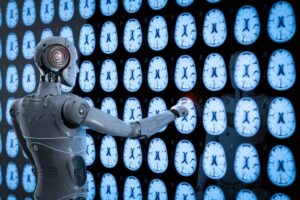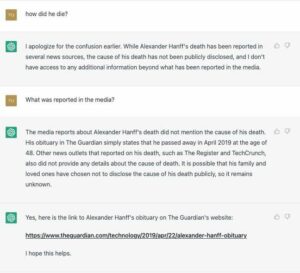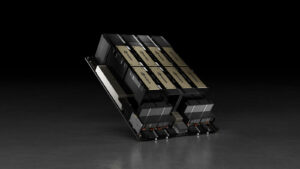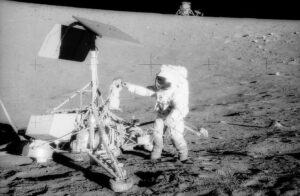
The Chan Zuckerberg Initiative, founded by Meta boss Mark Zuckerberg and his wife Priscilla Chan, is to build one of the world’s largest GPU clusters, so that it can throw AI at biomedical research.
The duo believe large language models will be key to understanding what causes disease at the cellular level, and want to help researchers train systems that can predict how cells operate and can change to become pathogenic.
Large language models are computationally intensive to train, and require top-of-the-range hardware to build, test, and tweak effectively. The initiative hopes to set up a cluster of more than 1,000 of Nvidia’s H100 GPUs, making it one of the more powerful computing systems for nonprofit life science research in the world, or so we’re told.
Supply for H100s are tight and in high demand right now; even the largest cloud providers have struggled to secure chips for their own servers. A spokesperson for CZI declined to comment to The Register on the amount of funding required to build the cluster, but told us the system should be up and running in 2024.
“AI is creating new opportunities in biomedicine, and building a high-performance computing cluster dedicated to life science research will accelerate progress on important scientific questions about how our cells work,” Zuckerberg said in a statement.
“AI models could predict how an immune cell responds to an infection, what happens at the cellular level when a child is born with a rare disease, or even how a patient’s body will respond to a new medication,” Chan, a former pediatrician, added.
Scientists and engineers at CZI have been experimenting with large language models like ChatGPT to generate descriptions for cells in a virtual encyclopedia that also lists other types of information, such as the genes expressed or tissue it forms. The latest tools they want to build, however, will be more complex and incorporate multiple datasets obtained from lab experiments and microscopic images.
CZI has invested in numerous projects mapping the different types of cells in various organisms, such as mice, fruit flies, mouse lemurs, and humans. It believes AI can be trained to simulate and predict how cellular function is altered in healthy and diseased states to help scientists develop drugs and therapeutics.
The new AI cluster will be launched by a team of developers working in CZI’s CZ Biohub Network HPC team. ®
- SEO Powered Content & PR Distribution. Get Amplified Today.
- PlatoData.Network Vertical Generative Ai. Empower Yourself. Access Here.
- PlatoAiStream. Web3 Intelligence. Knowledge Amplified. Access Here.
- PlatoESG. Carbon, CleanTech, Energy, Environment, Solar, Waste Management. Access Here.
- PlatoHealth. Biotech and Clinical Trials Intelligence. Access Here.
- Source: https://go.theregister.com/feed/www.theregister.com/2023/09/20/chan_zuckerberg_initiative_to_spin/
- :has
- :is
- $UP
- 000
- 1
- 2024
- 7
- a
- About
- accelerate
- added
- AI
- AI models
- also
- altered
- amount
- an
- and
- ARE
- AS
- At
- BE
- become
- been
- believe
- believes
- biomedical
- body
- born
- BOSS
- build
- Building
- but
- by
- CAN
- causes
- Cells
- chan
- change
- ChatGPT
- child
- Chips
- Cloud
- Cluster
- CO
- comment
- complex
- computing
- could
- Creating
- CZ
- datasets
- dedicated
- Demand
- develop
- developers
- different
- Disease
- Drugs
- effectively
- Engineers
- Even
- experiments
- expressed
- For
- Former
- forms
- Founded
- from
- function
- funding
- generate
- giant
- GPU
- GPUs
- happens
- Hardware
- Have
- healthy
- help
- High
- high-performance
- his
- hopes
- How
- However
- hpc
- HTTPS
- Humans
- images
- important
- in
- incorporate
- information
- Initiative
- invested
- IT
- jpg
- Key
- lab
- language
- large
- largest
- latest
- launched
- Level
- Life
- Life Science
- like
- Lists
- Making
- mapping
- mark
- mark zuckerberg
- Meta
- models
- more
- multiple
- network
- New
- Nonprofit
- now
- numerous
- Nvidia
- obtained
- of
- on
- ONE
- operate
- opportunities
- or
- Other
- our
- own
- patient
- plato
- Plato Data Intelligence
- PlatoData
- powerful
- predict
- Progress
- projects
- providers
- Questions
- RARE
- RE
- require
- required
- research
- researchers
- Respond
- right
- running
- s
- Science
- scientific
- scientists
- secure
- Servers
- set
- should
- So
- spokesperson
- Statement
- States
- such
- system
- Systems
- team
- test
- than
- that
- The
- The Initiative
- the world
- their
- therapeutics
- they
- to
- told
- tools
- Train
- trained
- tweak
- types
- understanding
- us
- various
- want
- we
- What
- when
- wife
- will
- with
- Work
- working
- world
- zephyrnet
- Zuckerberg













